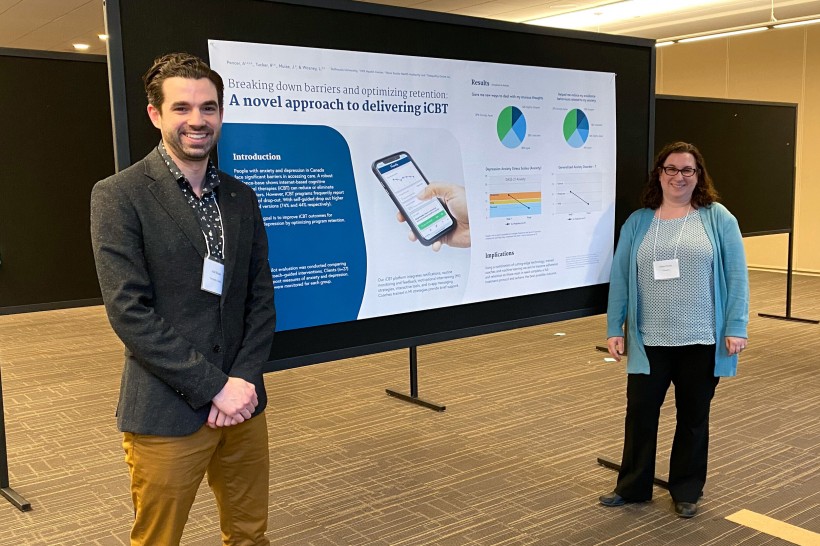Mental health startup Tranquility Online is collaborating with a Halifax charity, Partners For Care, to provide free services to healthcare workers in the midst of the COVID-19 pandemic.
Founded in 2017, Tranquility’s website and app offer an automated, digital version of cognitive behavioral therapy—a form of psychotherapy designed to cultivate self-awareness and short-circuit harmful patterns of thought.
The alliance with Partners For Care, which raises money for patients at the QEII Health Sciences Centre, comes after Tranquility Online closed a $400,000 round of equity funding.
Under the alliance with Partners For Care, health professionals can log in through a special portal, which Tranquility CEO Joel Muise estimates has been used by at least 30 people so far.
“The pandemic comes with what we call normal anxiety. We’re all dealing with increased levels of stress and anxiety for all kinds of different reasons,” said co-founder and senior scientific director Dr. Alissa Pencer in an interview, adding that the coronavirus could also trigger clinical levels of anxiety or depression in some people.
The Tranquility platform is designed to improve the affordability and accessibility of mental healthcare in light of long wait times for publicly funded treatment. It does this by using software to provide some of the same interventions that patients would receive from their therapists.
“We’ve taken the gold standard in the industry, which is cognitive behavioral therapy, and found a way to put it inside an online platform, so that the treatment itself is actually the software,” said Muise.
Meanwhile, members of the public can also receive a 50 percent discount on their subscriptions during the crisis.
Psychologist McGrath Launches 90Second Health
Users can choose from two subscription tiers. The first is a digital-only subscription that is regularly priced at $59 per month. The second normally costs $99 and includes access to the online services, plus 30 minutes per week of video, phone or in-app communication with a specially trained program coach.
The platform so far features a treatment path tailored for anxiety, and Tranquility Online plans to release a depression-centered version mid-summer.
Muise noted that many of the core principles of cognitive behavioral therapy apply regardless of what mental health issue is being treated, so people suffering from depression may still benefit from the anxiety program.
He estimated that it is possible to work through the anxiety course in as little as 12 weeks, but a more thorough user could take three to five months.
Muise and Pencer have used the $400,000 from their recent funding round to hire four full-time and one part-time employee.
The company, which previously received $25,000 in funding from the Volta Cohort program, will soon graduate from the Propel Incite accelerator.
Muise said that if non-profits in other provinces are interested in organizing programs similar to the deal with Partners For Care, he would like to hear from them.










